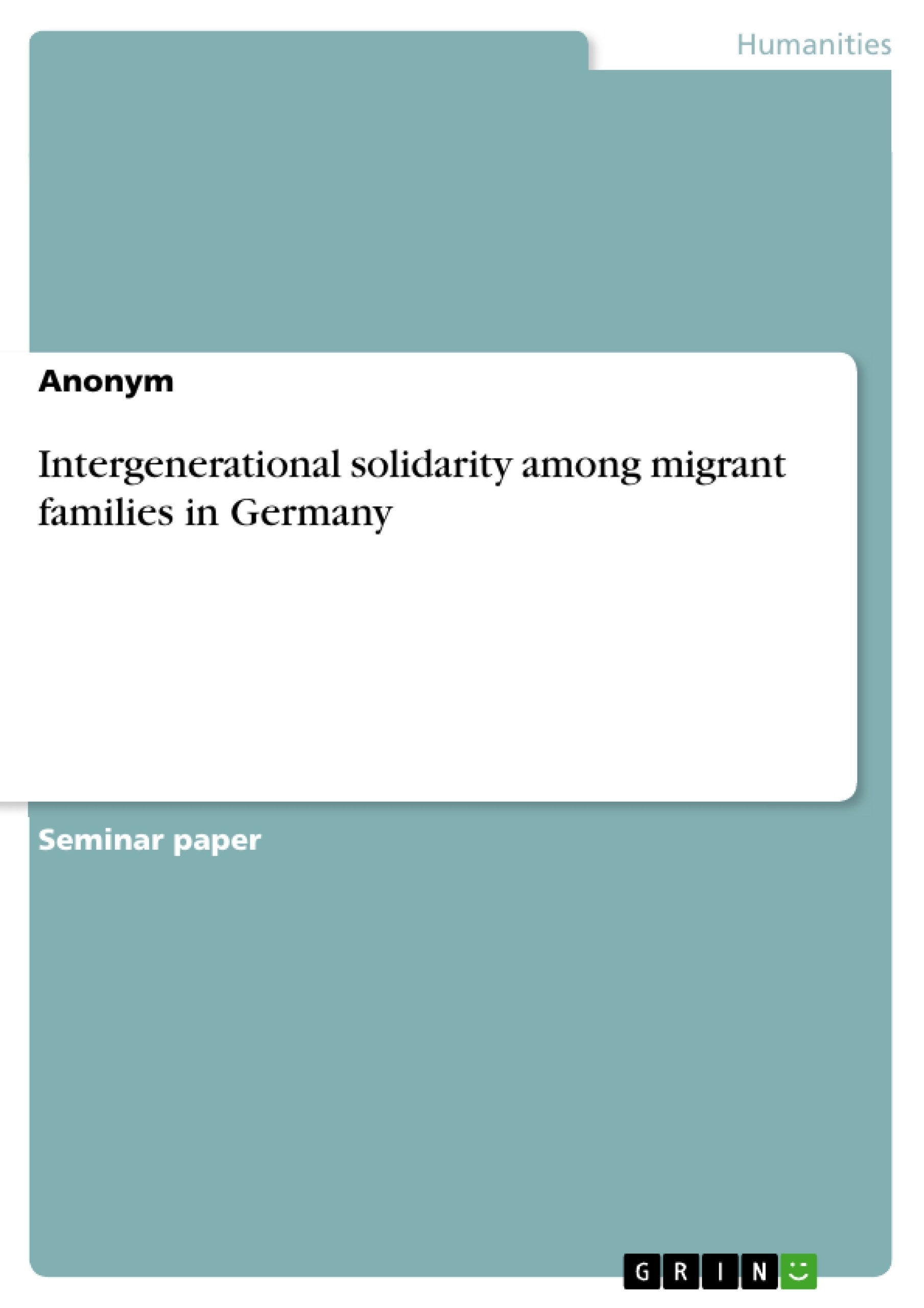As intergenerational bounds differ due to cultural context, the research questions in this study will be, if (1) family solidarity changes with migration, (2) will be adapted from 2nd generation migrants and if (3) a strong family cohesion could create a cultural conflict in which the 2nd generation experiences it as a burden. After an introduction to the theoretical background of family solidarity, acculturation and cultural conflict, the research question will be examined empirically using the German Ageing Survey (GAS) database from 2014. Finally, a conclusion and an outlook resulting from these findings will be given.
In recent years, family sociology was taking a specific focus on several topics, e.g. fertility, family forms and labour division in partnership. One other central research field were intergenerational relationships. Due to longer life expectancy, the increased shared lifetime of different generations has become more important than ever before. Intergenerational solidarity, the character of relationships between family members of different generations, can differ in terms of socio-economic status, education or cultural context. Especially for migrants, intergenerational relationships become much more important and the family often works as a “safe haven”, while other social contacts were left behind in their home country. In 2003, half of the 7.3 million foreign citizens in Germany had their origins in one of the recruitment countries (Italy, Greece, Turkey, former Yugoslavia, Spain and Portugal) and mainly migrated between 1955 and 1973. Meanwhile the 4th generation is growing up in Germany and their great-grandparents are now belonging to the retired workers.
Inhaltsverzeichnis (Table of Contents)
- Introduction
- Theory and Hypotheses
- Data and Methods
- Results
- Discussion
- Literaturverzeichnis
- Appendix
- Figures
- Figure 1: Predictive margins for functional solidarity towards parents over migrant status and net equivalence income
- Tables
- Table 1: Distribution of main characteristics (percentages)
- Table 2: Logistic regression models for intergenerational solidarity
- Abbreviations
Zielsetzung und Themenschwerpunkte (Objectives and Key Themes)
This research paper aims to explore the dynamics of intergenerational solidarity within migrant families in Germany. It focuses on the interplay between cultural backgrounds, migration experiences, and the evolving nature of family relationships across generations. The study seeks to understand how migration affects intergenerational solidarity, whether adaptation occurs in subsequent generations, and the potential for cultural conflict arising from differing family values.
- Intergenerational solidarity within migrant families
- The impact of migration on family relationships
- Acculturation and cultural conflict in migrant families
- The influence of cultural context and family values
- The role of generational differences in intergenerational solidarity
Zusammenfassung der Kapitel (Chapter Summaries)
- Introduction: This chapter provides an overview of the research topic, outlining the importance of intergenerational relationships in contemporary society, particularly for migrants. It highlights the research questions surrounding how intergenerational solidarity is influenced by migration and how cultural context impacts these dynamics.
- Theory and Hypotheses: This chapter delves into the theoretical framework of intergenerational solidarity, drawing upon the work of Bengston and Roberts. It explores the different dimensions of intergenerational solidarity, including associational, affectional, consensual, functional, normative, and structural solidarity. It also examines empirical evidence regarding patterns of family solidarity across different societies and the influence of migration on family relationships.
Schlüsselwörter (Keywords)
Intergenerational solidarity, migrant families, Germany, acculturation, cultural conflict, family values, generational differences, social networks, welfare state, family cohesion, migration experiences, German Ageing Survey (GAS).
- Quote paper
- Anonym (Author), 2018, Intergenerational solidarity among migrant families in Germany, Munich, GRIN Verlag, https://www.hausarbeiten.de/document/1322966


